4S: Philosophy and Theory
Web sale for those interested in science and technology studies and/or attendees of the 2023 annual meeting of the Society for the Social Studies of Science. Books on sale, University of Minnesota Press information, and more.
UNIVERSITY OF MINNESOTA PRESS: 40% OFF BOOKS
All books below qualify for 40% off and free domestic shipping using code MN4S23. Code expires December 15, 2023.
BROWSE BOOKS:
PHILOSOPHY AND THEORY // ART AND MEDIA // ENVIRONMENT
POLITICS AND ACTIVISM // ANIMALS AND SOCIETY // ANTHROPOLOGY
SCIENCE AND TECHNOLOGY // DIGITAL CULTURE // ETHNOGRAPHY
RACE // GENDER AND SEXUALITY // GEOGRAPHY
LITERATURE // LITERARY CRITICISM // DISABILITY STUDIES
-
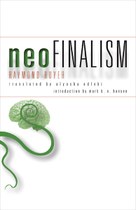 Neofinalism
Raymond Ruyer
2016 Spring
Neofinalism
Raymond Ruyer
2016 Spring
- The masterwork of an influential French philosopher, available in English for the first time
-
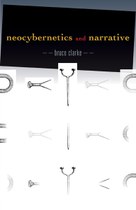 Neocybernetics and Narrative
Bruce Clarke
2014 Fall
Neocybernetics and Narrative
Bruce Clarke
2014 Fall
- An innovative application of systems theory to narrative and media
-
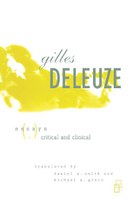 Essays Critical and Clinical
Gilles Deleuze
1997 Fall
Essays Critical and Clinical
Gilles Deleuze
1997 Fall
- The final work of this essential thinker
-
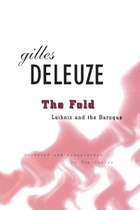 The Fold
Leibniz and the Baroque
Gilles Deleuze
1992 Fall
The Fold
Leibniz and the Baroque
Gilles Deleuze
1992 Fall
- In The Fold, Gilles Deleuze argues that Leibniz’s writings constitute the grounding elements of a Baroque philosophy and of theories for analyzing contemporary arts and science. A model for expression in contemporary aesthetics, the concept of the monad is viewed in terms of folds of space, movement, and time. Similarly, the world is interpreted as a body of infinite folds and surfaces that twist and weave through compressed time and space. According to Deleuze, Leibniz also anticipates contemporary views of event and history as multifaceted combinations of signs in motion and of the “modern” subject as nomadic, always in the process of becoming.
-
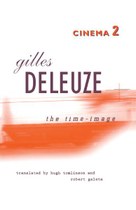 Cinema 2
The Time-Image
Gilles Deleuze
1989 Fall
Cinema 2
The Time-Image
Gilles Deleuze
1989 Fall
- Brings to completion Deleuze’s work on the implications of the cinematographic image. In Cinema 2, Deleuze explains why, since World War II, time has come to dominate film. Among the filmmakers discussed are Rossellini, Fellini, Godard, Resnais, Pasolini, and many others.
-
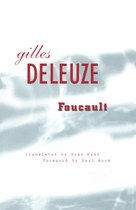 Foucault
Gilles Deleuze
1988 Spring
Foucault
Gilles Deleuze
1988 Spring
- The first analysis of Foucault’s work by a major philosopher working within the same poststructuralist tradition.
-
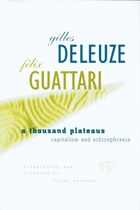 A Thousand Plateaus
Capitalism and Schizophrenia
Gilles Deleuze and Felix Guattari
1987 Fall
A Thousand Plateaus
Capitalism and Schizophrenia
Gilles Deleuze and Felix Guattari
1987 Fall
- A positive exercise in the affirmative, “nomad” thought called for in its companion volume, Anti-Oedipus. This series of essays address war and death, territoriality and the anthropology of groups, model theory, and psychosis.
-
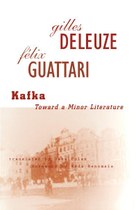 Kafka
Toward a Minor Literature
Gilles Deleuze and Felix Guattari
1986 Fall
Kafka
Toward a Minor Literature
Gilles Deleuze and Felix Guattari
1986 Fall
- Instead of interpreting Kafka’s work according to pre-existing categories or literary genres, they propose a concept of “minor literature”—the use of a major language that subverts it from within.
-
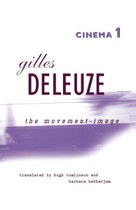 Cinema 1
The Movement-Image
Gilles Deleuze
1986 Fall
Cinema 1
The Movement-Image
Gilles Deleuze
1986 Fall
- A revolutionary work in philosophy and a book about cinema that identifies three principal types of image-movement using examples from the work of a diverse group of filmmakers including Griffith, Eisenstein, Cassavetes, and Altman.
-
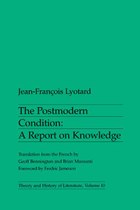 The Postmodern Condition
A Report on Knowledge
Jean-François Lyotard
1984 Spring
The Postmodern Condition
A Report on Knowledge
Jean-François Lyotard
1984 Spring
- This founding essay of the postmodern movement argues that knowledge-science, technology, and the arts-has undergone a change of status since the 19th century and especially since the late 1950s.